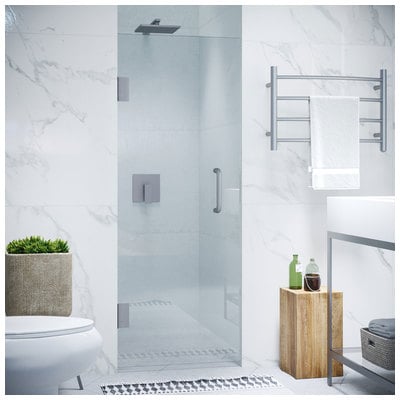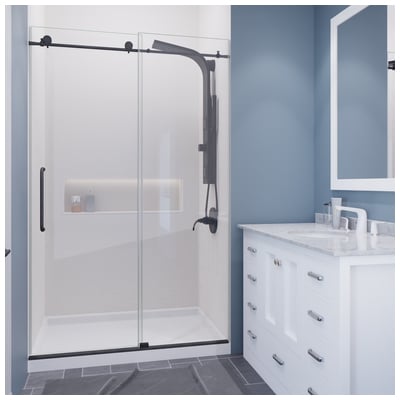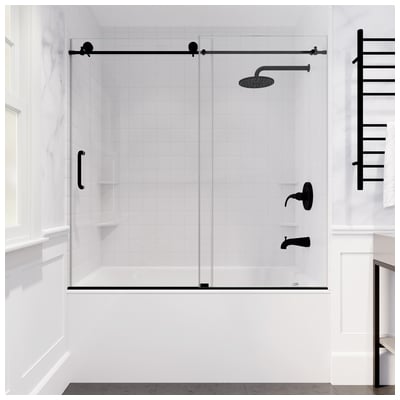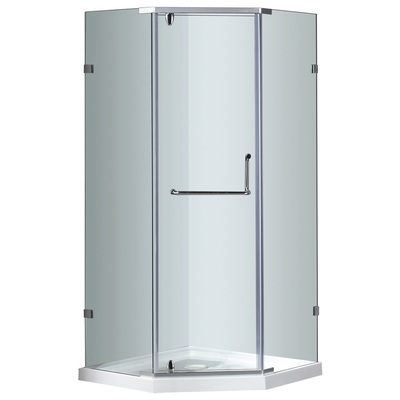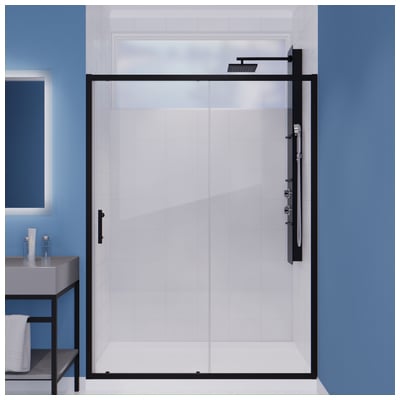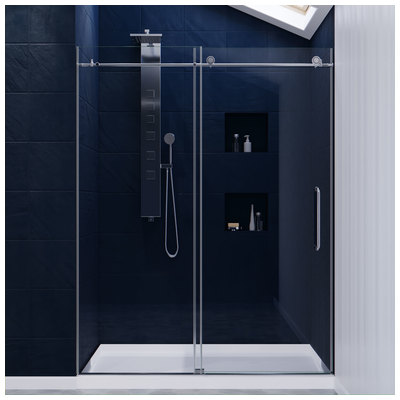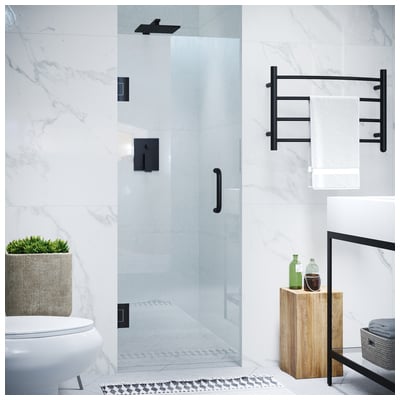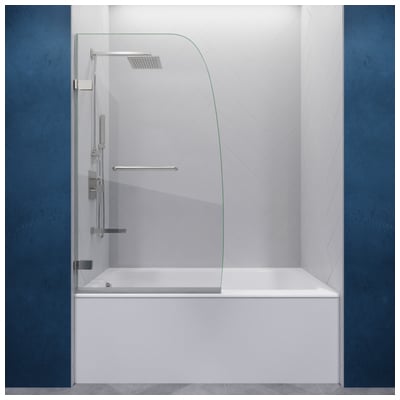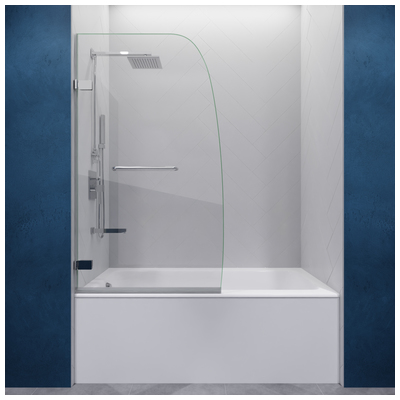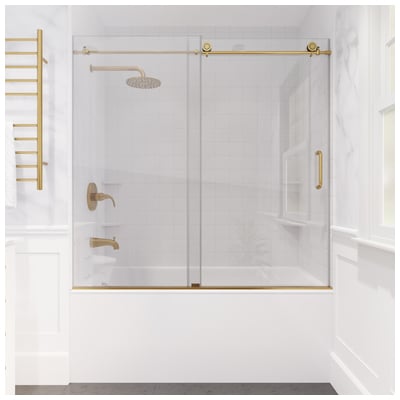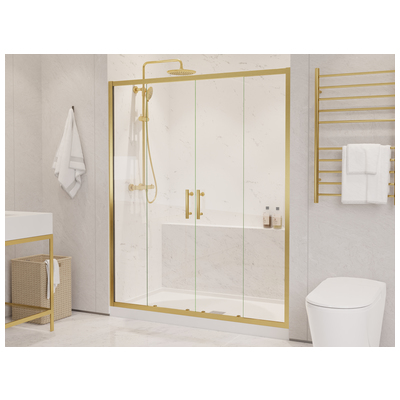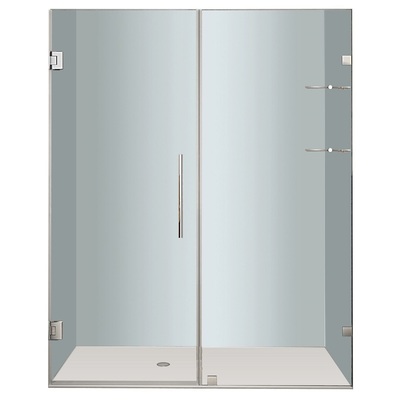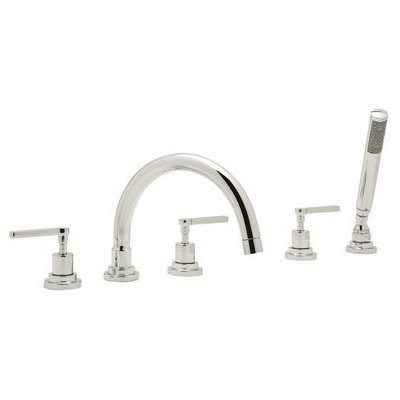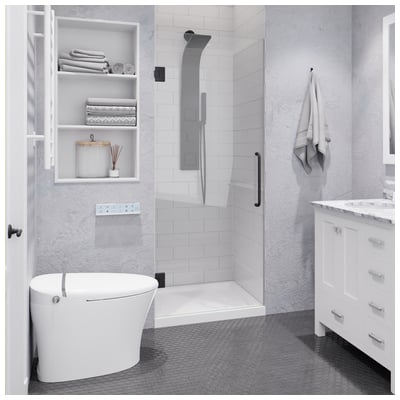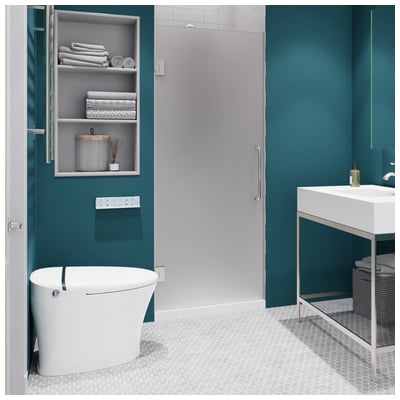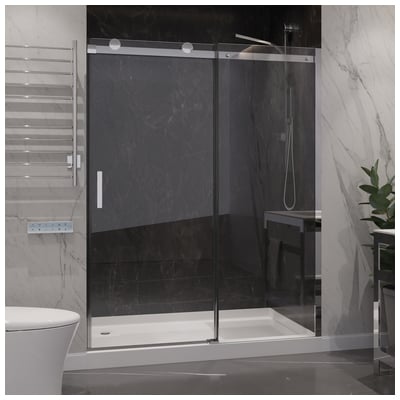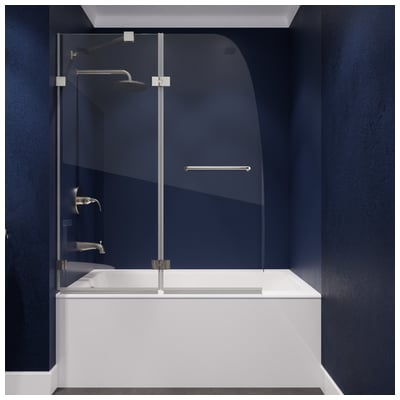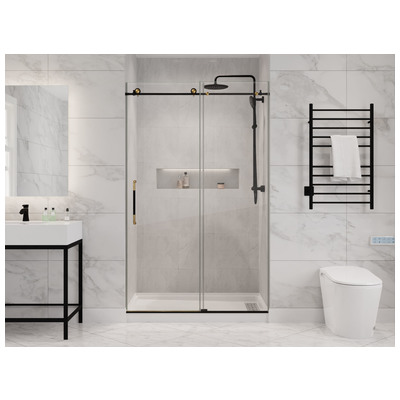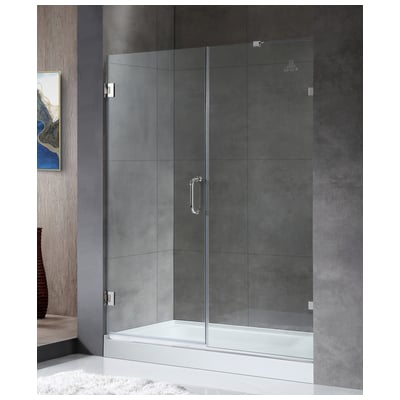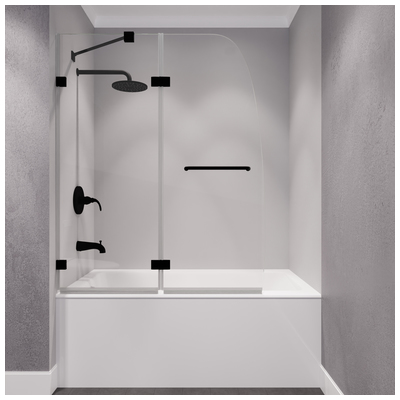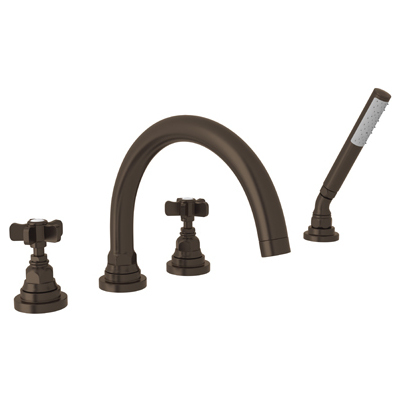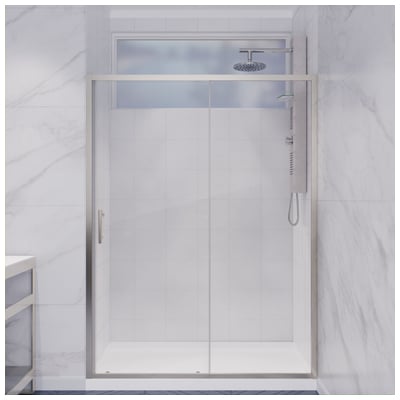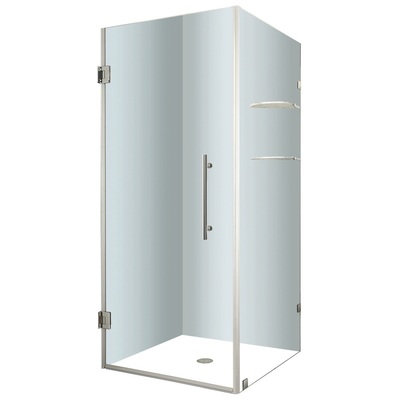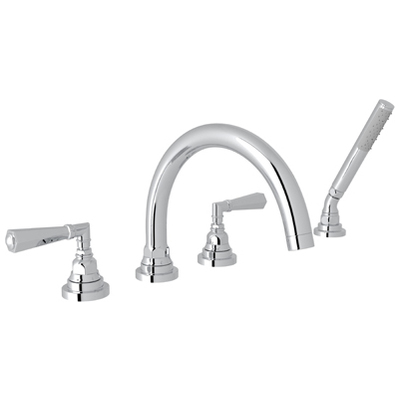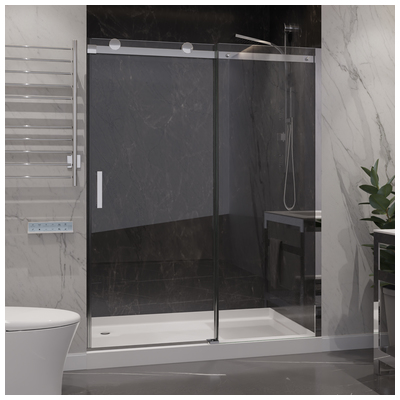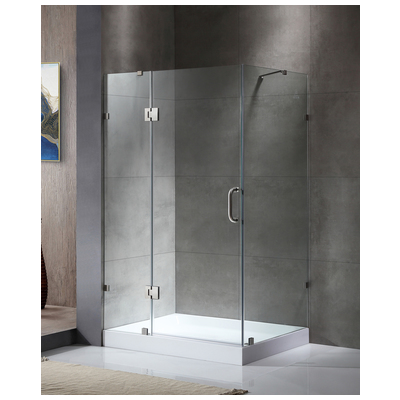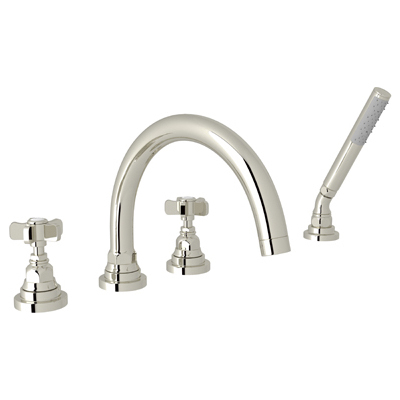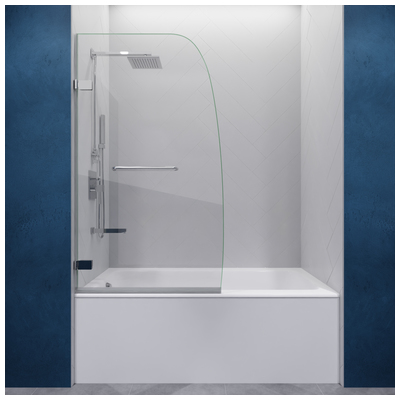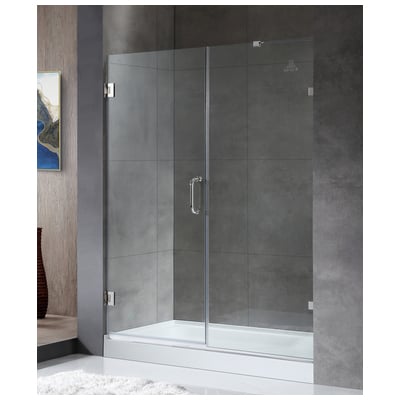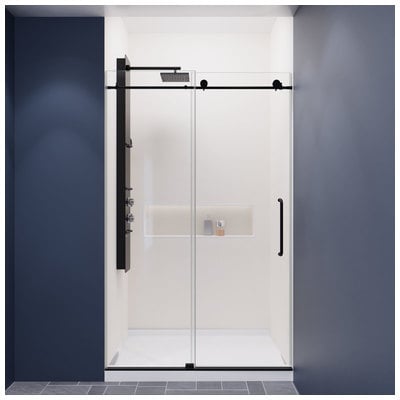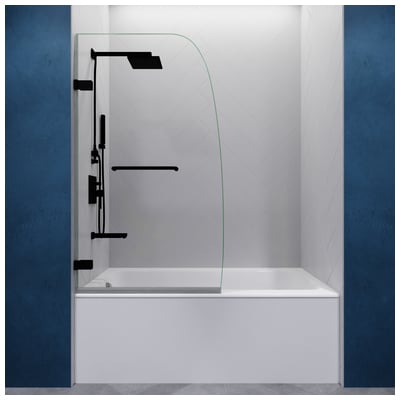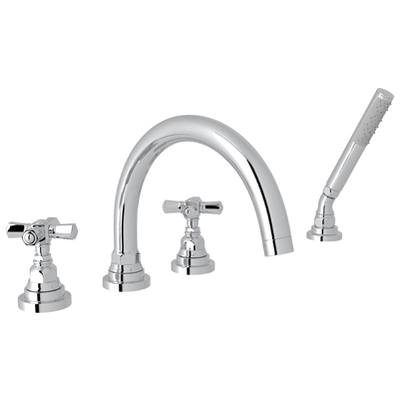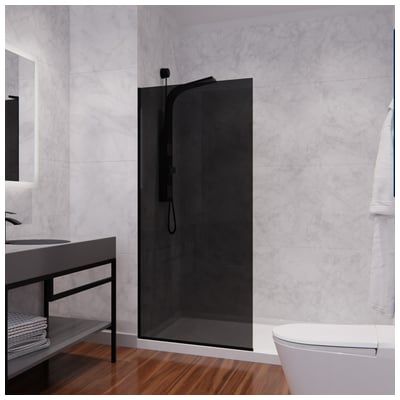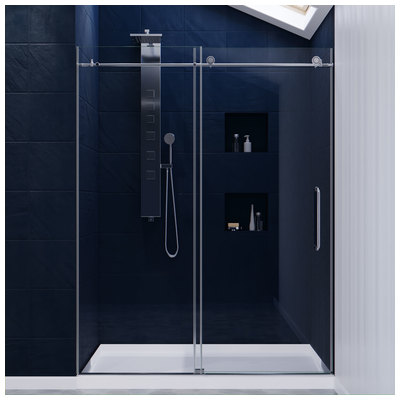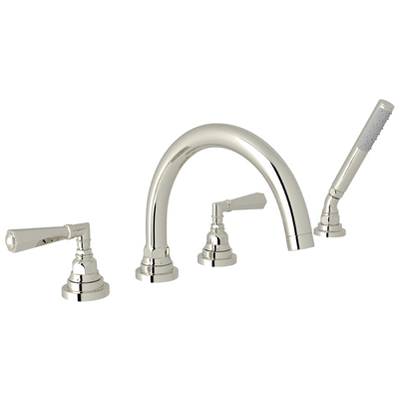You might not realize it, but one of the most mundane, practical decisions you have to make for your bathroom is actually one that will have a huge impact on the overall look and feel of your space. How to keep the shower from splashing water onto the rest of your bathroom isn’t exactly a glamorous problem to solve, but the most common options you have to chose from all have a long list of pros and cons, both practical and aesthetic. Shower curtains, shower doors, and shower screens all get the job done, but produce totally different bathroom looks and shower experiences. So unless you plan to go totally barrier-free, you’re going to need to figure out which one is right for you.
Shower Curtains
There’s a reason you can find shower curtains and shower rods in just about any store that even kinda-sorta sells home goods: shower curtains are the simplest to install, most affordable to purchase, and easiest to change out of any way of closing off your shower, and they come in the widest variety of colors, materials, and styles. If you’re looking for customizability, shower curtains are it: you can find just about any pattern and mix up your look as often as you want without breaking the bank.
The drawback is that shower curtains also close off your bathroom more than any other option. They form a literal physical barrier between your shower and the rest of the bathroom, and because most are opaque, you visually lose the space inside your shower. Great for privacy, but not the best if your bathroom is already small. Shower curtains are also the most likely to collect soap scum and mold, and can be a bit of a challenge to launder, which means they’ll need to be replaced relatively frequently. And if you don’t want a piece of plastic or fabric getting a little grabby with you in the shower, you probably want to steer clear.
Shower Doors
Shop Shower Doors:Shower doors are the next most common option for keeping your shower enclosed. On most average setups that means either two sliding glass doors on rails that cover the full length of your shower or a glass wall with a door in it. Unlike shower curtains, shower doors won’t visually block off your shower enclosure; even frosted or textured glass lets you retain some of the depth of the room and won’t block light, so you won’t have to worry about your shower stall being too dark. Anything but clear glass is also good for privacy, so you won’t have to worry about feeling overly exposed.
Shower doors do require a bit of maintenance, though; glass shows hard water stains and soap scum, and water and soap gunk can build up in the rails, both of which require a little more elbow grease than just chucking a shower curtain in the wash (or hanging up a new one). Shower doors are also quite a bit more expensive, but are a good long-term investment that can raise the value of your bathroom. Opting for a more modern (slightly more expensive) frameless shower door will get you the most bang for your buck. They’re trickier to install, but produce an even more open feel.
Shower Screens
Traditional shower doors have shifted to frameless ones, angling for more open and barrier-free bathroom spaces. Shower screens are the next logical evolutionary step, eliminating the shower enclosure and replacing it with a simple glass panel alongside the shower head. This small pane of glass is sized and positioned carefully to guard against the parts of the shower where water is most likely to splash, but leaves the rest of the enclosure open to the bathroom. With no doors or hinges, this setup has almost no visual footprint, fully connecting your shower to the rest of your bathroom and keeping the space – big or small – feeling spacious and unconfined.
Because they use a fraction of the materials, splash guards are also typically much less expensive than traditional shower doors (though they require a little more finesse to install). That said, the main drawback here should be pretty obvious: they don’t offer the same coverage as either a shower door or a shower curtain. Typically made of clear glass, splash guards afford virtually no privacy. Because the enclosure isn’t blocked off entirely, there’s also no guarantee against stray splashes – not to mention a whole lot less protection against drafts. Since there’s no enclosure to trap steam and heat, if your bathroom is cold or drafty, this might not be the best option for you – no matter how good it looks!
Building the “perfect” shower is really about finding the right balance between the style and the shower experience you want, then finding the option that best fits your needs. There’s no right or wrong answer, just whatever you’re going to enjoy on a daily basis!


